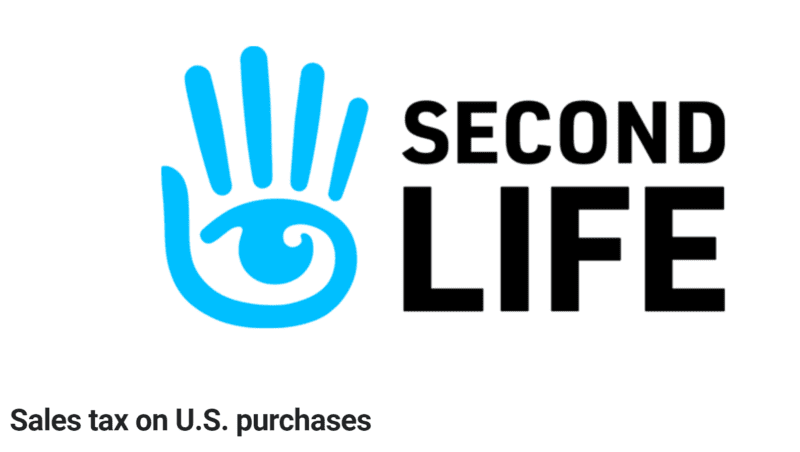Quick take:
- Metaverse platform Second Life is introducing taxes to US users.
- The taxes will be levied on recurring billings like subscriptions and land fees.
- Second Life parent Linden Labs said it will continue to absorb taxes charged on one-time name changes and purchases of $L in-game currency.
Linden Labs the parent company of metaverse platform Second Life has announced it will be passing on taxes levied on subscriptions and digital land fees to the user in the US. However, LInden will continue to absorb taxes charged on one-time name changes and purchases of its native token $L. Linden noted that those taxes too will be passed on to the user in future.
According to a blog post on the Second Life website, the company wrote:
“As of March 31, 2022, we will begin charging sales tax in the U.S. For the time being, we will charge taxes only on recurring billings, such as premium subscriptions and land fees. The amount of tax charged will be communicated clearly in the receipt or invoice.”
Linden Labs cited the Wayfair Sales Tax case decision by the Supreme Court in 2018 that resulted in the introduction of various sales taxes on internet-based transactions. The technology firm maintained that it has been able to cushion its users against such taxes until now, saying it is no longer able to absorb them.
The individual tax charges in the US vary depending on the tax jurisdiction, with some States charging lower sales taxes compared to others. Overall, there are more than 13,000 sales and use tax jurisdictions in the US.
In the US, four states Delaware, Montana, New Hampshire, and Oregon do not charge sales taxes, while in seven states, including Seattle, Chicago, Los Angeles, and Oakland, California, sales taxes can be as high as 10% in combined state and local taxes on specific purchases.
Linden Labs said it will use an automated system provided by a third party to determine the right tax for every individual user. “We will be relying on an automated third-party system which closely tracks local tax laws, so the tax amounts are always up to date.”
The decision was made in a bid to keep the business healthy. Second Life hit the headlines in January after receiving a major investment from Linden Labs to revamp its metaverse project. Founded in 2003, it is regarded as the pioneer of virtual worlds.
Although the company did express an appreciation to its users for understanding the unavoidable decision, it could face a significant decline in the user base if some of them don’t get on board with the changes.
According to web analytics platform Similar Web, nearly 50% of Second Life users are based in the US. The platform generated $600 million in turnover last year and paid more than $80 million to its users.
Stay up to date:





